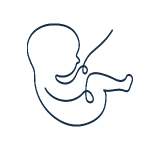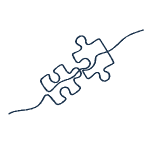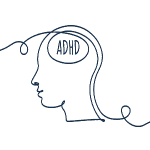Comprehensive Solutions to Complex Challenges
Assessments
NDS Multidisciplinary Team does not assess to criteria but provide comprehensive assessments:
- FASD
- ASD
- ADHD
- ID
- GDD
- Neurodiverse assessment
- SLD
- Mental Health Disorders
Assessments are generally completed during two to three sessions and through a variety of activities in a fun and interactive environment. The assessment battery is carefully designed to engage the client’s interest while providing valuable insight into their capacity, strengths and weaknesses.
Given environmental factors play a role in a child’s functioning, we also gain a school perspective and take into account the home perspective.
Guiding Documents:
Autism Spectrum Disorder (ASD)
An autism assessment helps determine whether an individual is on the autism spectrum through a diagnostic assessment. For those already diagnosed, a review assessment can be requested to update their diagnosis and gather additional information -often useful for funding applications or support planning. NDS follow the “National Guidelines for the Assessment and Diagnosis of Autism Spectrum Disorder”, and use standardised assessments:
- ADI-R
- ADOS
- MIGDAS
- ABAS-III
- SRS-2
- SPM-2
Clinician will select the most appropriate assessments based on individual needs and presentation. NDS Multidisciplinary Team aims to provide non-judgemental comprehensive ASD assessment, diagnosis, and support for children and families. An ASD Diagnostic assessment is completed over two sessions. A combination of interviews, one-to-one direct measures, review of documentation, and indirect measures are used when conducting an ASD Diagnostic assessment. Results are collated in a comprehensive report with a focus on individual strengths, areas of need, and capacity building.
Assessment outcomes will be discussed in a feedback session. Recommendations for support and follow up will be included in the report.
Fetal Alcohol Spectrum Disorder (FASD)
FASD is a lifelong condition resulting from irreversible brain damage caused by alcohol exposure before birth. Awareness is growing across Australia about the importance of avoiding alcohol during pregnancy and breastfeeding to support the healthiest start for children. Despite this, FASD continues to impact many individuals.
Attention Deficit Hyperactivity Disorder (ADHD)
ADHD is a neurodevelopmental condition meaning there is brain dysregulation affecting an individual’s development and functioning. There are three different types of ADHD:
- Inattentive
- Hyperactive
- Combined presentation
The Diagnostic and Statistical Manual of Mental Disorders (DSM 5 TR) is the manual used by clinicians and researchers to diagnose and classify mental disorders and is produced by The American Psychiatric Association (APA). NDS uses observational behavioural checklists to support ADHD diagnosis. An ADHD assessment includes:
- Comprehensive background interviews
- Behaviour checklists across two settings
- Developmental, Mental Health, learning and cognitive assessments may be required
- Review of school data. Adults need to provide evidence of attentional challenges before the age of 12.
An ADHD assessment usually requires one face-to-face session and two perspectives (indirect measures).
How We Help

Fetal Alcohol Spectrum Disorder (FASD)

Trauma and Attachment Disorders

Autism Spectrum Disorder (ASD)

Attention Deficit/Hyperactivity Disorder (ADHD)

Global Development Delay (GDD)

Specific Learning Disabilities (SLD)

Other Neurodiverse Conditions

Intellectual Disability (ID)

